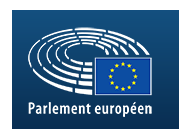Document type : Written answer published in the Journal officiel de la République française
Authors: Question: Mrs Sylvie Tolmont (Socialists and allies - Sarthe). Answer: French Ministry of Agriculture and Food
Question: Ms Sylvie Tolmont draws the attention of the Minister for Ecological Transition to the need to introduce strong measures to combat the abandonment of pets. Indeed, with an average of 100,000 abandonments each year, France holds the European title for the number of abandoned animals. With the arrival of summer, many shelters are facing an absolutely catastrophic situation, overwhelmed by the influx of many pets abandoned by their owners. For example, the Société protectrice des animaux (SPA) recently announced that its 62 shelters across the country had almost reached saturation point. In Sarthe, the SPA shelter in Yvré l'Evêque had almost reached its maximum capacity by mid-July 2021. Between May and July 2021, staff running this shelter recorded 17% more abandoned animals than in 2019. The situation is serious and is not likely to get any better, as summer is the peak period for the abandonment of pets with the departure of owners on their holidays. Faced with this influx, which is leaving under-resourced shelters helpless and unable to take in all the rescued animals, strong measures must quickly be put in place. For a long time, now, proposals have been put forward by the associations who take in these animals. Combating the irresponsible purchase of animals in pet shops or on websites of the sort that occurred during the successive lockdowns, is one of the ideas they propose. It is also important to make members of the public aware, from a very young age, of what constitutes responsible adoption and to encourage in-depth reflection because the adoption of an animal is a commitment that must be fulfilled over a period of fifteen years. She would therefore like to know what his plans are to combat this scourge.
Answer: The Minister of Agriculture and Food has made the fight against pet abandonment a priority and he accordingly put forward a three-part action plan in December 2020. The first part forms part of the national recovery plan, which has made it possible to allocate a budget of €20 million to the fight against abandonment, including the allocation of €14 million for investment in shelters and sterilisation campaigns. Ten months after the launch, the measures to support shelters and pet-protection associations have made possible 329 modernisation and sterilisation projects. Given that nearly 90% of the funds have already been committed, the President of the Republic announced on 4 October 2021 that the initial budget would be increased by a further €15 million. Funds are allocated for the purchase of equipment, the payment of veterinary costs and the renovation and modernisation of facilities or premises. Projects to sterilise stray cat populations, some of which are run by small associations without shelters, have also been funded. Support has also been allocated to five animal protection associations or foundations working at national level to help formalise and professionalise local associations. A further focus of the Recovery Plan is the introduction of help to access veterinary care for animals belonging to the most disadvantaged in society, with the help of the veterinary profession, which has set up a national association, accessible in all regions, under the name of "Vétérinaires pour Tous". This step, which is still in the process of being implemented, is also supported by social services and students of the national veterinary schools. Last, the Recovery Plan makes provision for the establishment of an observatory for the protection of domestic carnivores that would guide public policies relating to domestic carnivores. Initially, the observatory's mission is to establish the facts concerning the number of abandonments in France and to characterise them in order to introduce actions to combat this phenomenon. The action plan has three components:
- It first aims to make prospective pet buyers more responsible. To this end, the sale of a dog or cat in a vehicle, which is currently possible under certain conditions, will be prohibited. In addition, prior to any new acquisition of a pet, the purchaser will have to present to the seller a certificate of knowledge, attesting to a level of knowledge sufficient for the continued care of the animal. This new requirement, the details of which have yet to be specified, is included in the law to combat animal abuse and strengthen the bond between animals and humans, which was promulgated on 30 November 2021. This same legislation adopts another of the Minister's commitments, namely to ensure better supervision of ownership transfers on the internet. Without awaiting the outcome of the debate, the Minister of Agriculture and Food had encouraged the drafting of the charter of commitment to the protection and welfare of pets that are the subject of a transaction via an online sales platform. These new provisions are now enshrined in law and are intended to raise awareness among sellers and buyers alike and to prevent the publication of any advertisements that fail to comply;
- Awareness-raising is necessary from a very young age. A booklet for elementary school children is being prepared in collaboration with the Ministry of Education and veterinarians;
- The last component involves the strengthening of penalties. The aforementioned law proposes a strengthening of the penalties for mistreatment and extends the power to carry out identification checks to rural and urban officers of the law, two measures that were also sought by the Minister in December 2020. Failure to microchip cats has also been punishable by a fine of €750 since 21 December 2020 (Decree No. 2020-1625).






